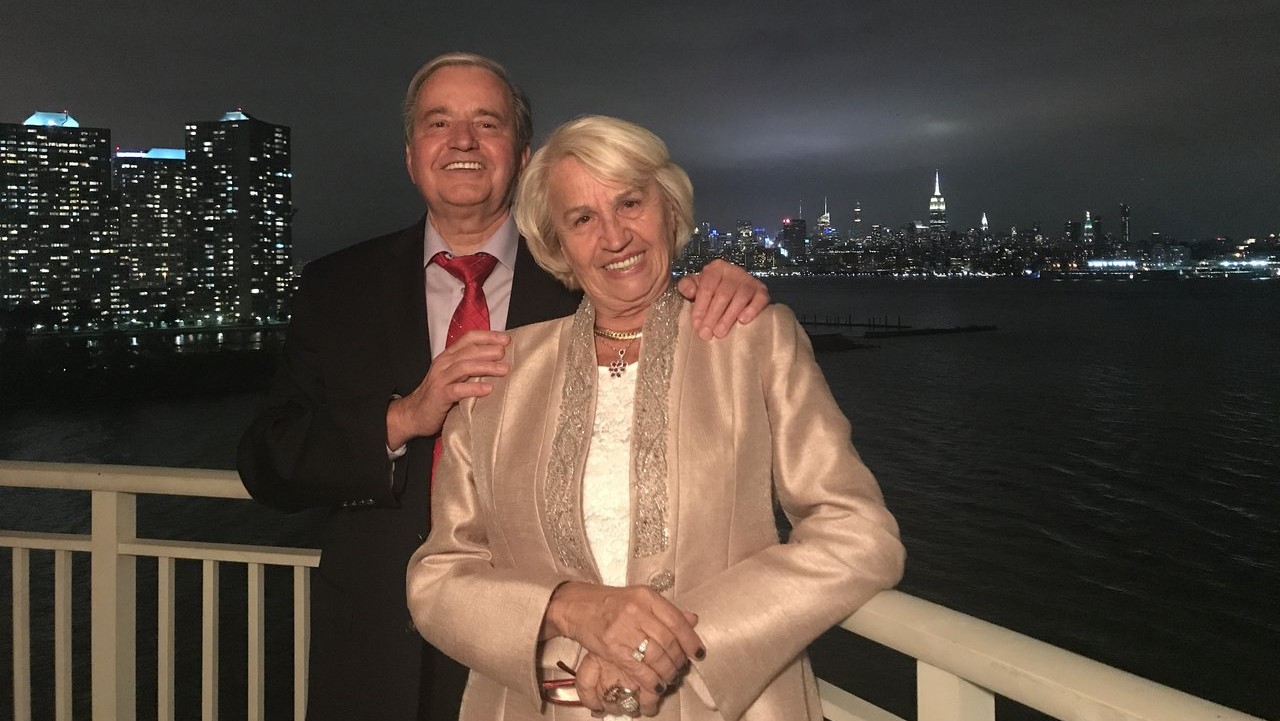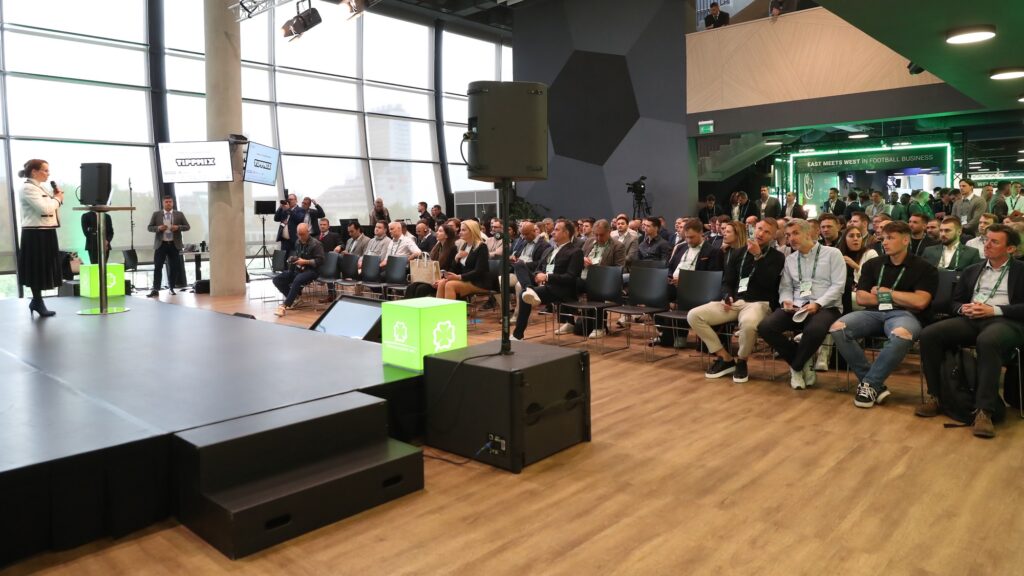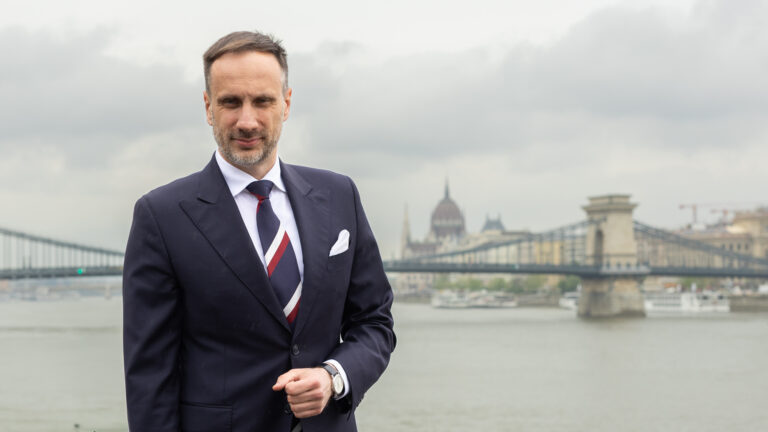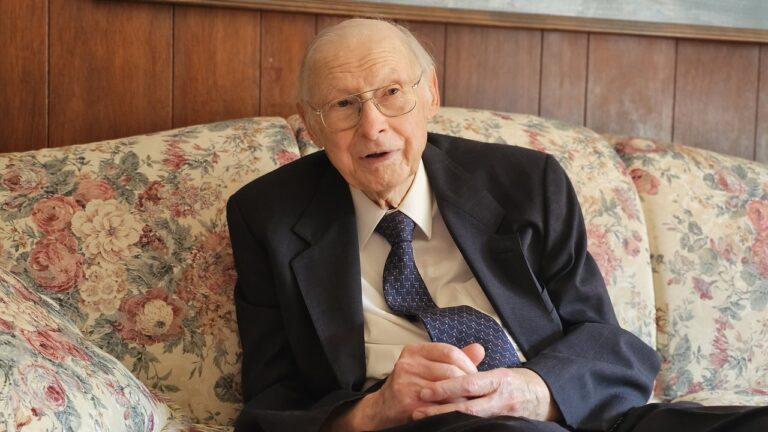This is an abridged version of the original interview, first published in Reformátusok Lapja on 14 January 2024 and subsequently online on reformatus.hu on 27 January 2024.
Zsuzsa and Mózes Kovács were born in Kolozsvár (now Cluj, Transylvania, Romania, at that time part of Hungary). They immigrated to New Brunswick, New Jersey, in 1969. Mózes served as a presbyter of the local Hungarian Reformed Church for six years and held the presidency of the local Hungarian Club (Hungarian American Athletic Club, HAAC) on multiple occasions. Zsuzsa led the parents’ association of the local Hungarian scout troop for seven years. Their children have continued the tradition of community involvement.
***
This year marks your 60th wedding anniversary. After five years of marriage, you fled from Kolozsvár. Why?
Mózes: We were both born and raised in Kolozsvár, which was part of Hungary between 1940 and 1944, but later part of Romania again. My younger brother was Zsuzsa’s high school classmate, that’s how we met. For a long time, there was nothing between us until one day, when I was a student at the Mechanical Engineering College, I saw her on the street, walking into a pastry shop, and I decided to wait for her. Meanwhile, she was watching me through the pastry shop mirror. That was the fateful meeting…As a young married couple, life was tough in Kolozsvár, and I was even persecuted. Back in 1964, I read a newspaper article stating that visas were no longer required for Hungary. This didn’t mean much since passports were still nearly impossible to obtain without standing in long queues at the police station. But I naively discussed with my friends how great it would be if traveling became easier. Half an hour later, the Securitate—the Communist state security service in Romania—came for me and accused me of being an ‘irredentist’. I tried to explain that I had simply read the news in the newspaper. The party secretary, who pretended not to speak a word in Hungarian, somehow managed to read the Hungarian article. They called a large assembly and expelled me from the youth organization of the workplace (the Romanian equivalent of the Communist Youth League in Hungary). Life became even harder afterwards. I repeatedly requested housing, but my application was always denied. At the time, apartments in Communist Romania were allocated centrally, and we never received one, so we had to live with our parents. Zsuzsa’s employer told her that if her husband obtained an official letter stating he would not be scheduled on the waiting list to obtain an apartment, she might be prioritized, provided she would participate in the company folk dance group…Eventually, we were assigned a small room, which felt like the center of the world for us. It belonged to an elderly couple’s apartment, whose son, an engineer who worked at my workplace, had just been assigned an apartment, so we took over his former room. You can imagine how much his parents resented us. Nevertheless, we were thrilled with our little room, but my greatest wish remained to leave that place. Not for comfort, but simply to live a normal life. I kept dreaming of being a bird and flying over the border…
Zsuzsa: We were also afraid. On 1 January 1968, our first baby was born under tragic circumstances. It was New Year’s Eve, and aside from me, everyone in the hospital was drunk. The doctors injured the baby’s head, and we couldn’t take him home. He remained in the hospital for five months and 22 days. The professor told us: ‘You are intelligent young people, this child, he will never be normal and will be unable to live without medical supervision.’ We buried the baby on 22 June. By then, we had already applied for a travel permit. Being completely broken mentally and in every other way, we signed up for a foreign trip. The Warsaw Pact forces entered Czechoslovakia, and it was chaotic in those days, so we ended up in Vienna, without informing anyone beforehand.
‘It was New Year’s Eve, and aside from me, everyone in the hospital was drunk. The doctors injured the baby’s head’
What happened in Vienna, and how did you get to America?
Mózes: Huge military convoys were moving through the area, forcing us off the road. Many people were trying to flee to Austria. Amidst the chaos, we somehow managed to cross the Hungarian–Austrian border with our tour bus, but the Securitate-assigned tour guide confiscated all our documents and prevented any luggage from being taken off the tour bus. Apparently, only the driver, the tour guide, and one other person returned to Communist Hungary and Romania—everyone else fled. I had a small bag with me, which they checked, but it appeared empty. I had hidden our important documents—school certificates and our marriage license—inside a double-bottom compartment of the handbag. I didn’t tell Zsuzsa, because if the Romanian border guards had inspected every bag and seen the panic on her face, they’d have immediately known we were hiding something. Instead, I calmly stepped back and waited for the luggage to be returned to us. Thus, those documents were saved; however, later everything else—even our suitcase and passports—had to be left at the tour bus in Vienna.
Zsuzsa: We were among the first people in the 60s from Transylvania who managed to get to the West. Fear was ingrained in us so deeply that I constantly imagined we’d be caught and deported back. It was November, and we were walking the streets in Vienna in our single clothes, freezing by nightfall. We reported ourselves to the police, because we had nowhere to go and sleep. There were six of us, five men and me. None of us spoke foreign languages, except for one guy who spoke a tiny bit of English. When the police asked if we had any papers to prove our identity, only Mózsi answered yes. Everyone stared at him as if he had come from Mars, including me. He had stored his bag in a locker at the station. The officer took him there, he retrieved it, and handed over the documents. When they saw we were from Romania, they accepted us as refugees from a Communist country…
Mózes: After asking us if we have a place to stay overnight, and we said ‘no’, without telling us anything, they put us in a car and drove us to jail. Men were in separate cells, Zsuzsa alone in another, the ladies’ cell. That’s when I got really scared, thinking we’d be deported. The next day, they put us in a car again and took us to a refugee camp. But that wasn’t much better—we were all in one shared room for two days. I felt terrible and I told Zsuzsa: ‘My God, what have I done to you?’. But she kept my spirits up, saying we’ll get through it. Then we were separated again; the men were placed in quarantine while their backgrounds were checked. We were apart for two weeks, but we managed to communicate: we were allowed to meet once a week for an hour, and we sent each other cigarettes using ropes made from bedsheets.
Zsuzsa: Looking back now, it wasn’t that terrible, but at the time, we were very stressed, because we had no idea what would happen to us. Later, they gave us a small room since we were married, and that made everything much better. We lived near Vienna for nine months. I worked at the Schrack telephone factory, Mózsi in a workshop in Baden. Every morning, we would go to the train station together—one of us went left, the other right. The first few months were really tough. I remember the horrible feeling when people moved away from us on the train, as if we had lice. It was obvious we were refugees…in donated winter coats.
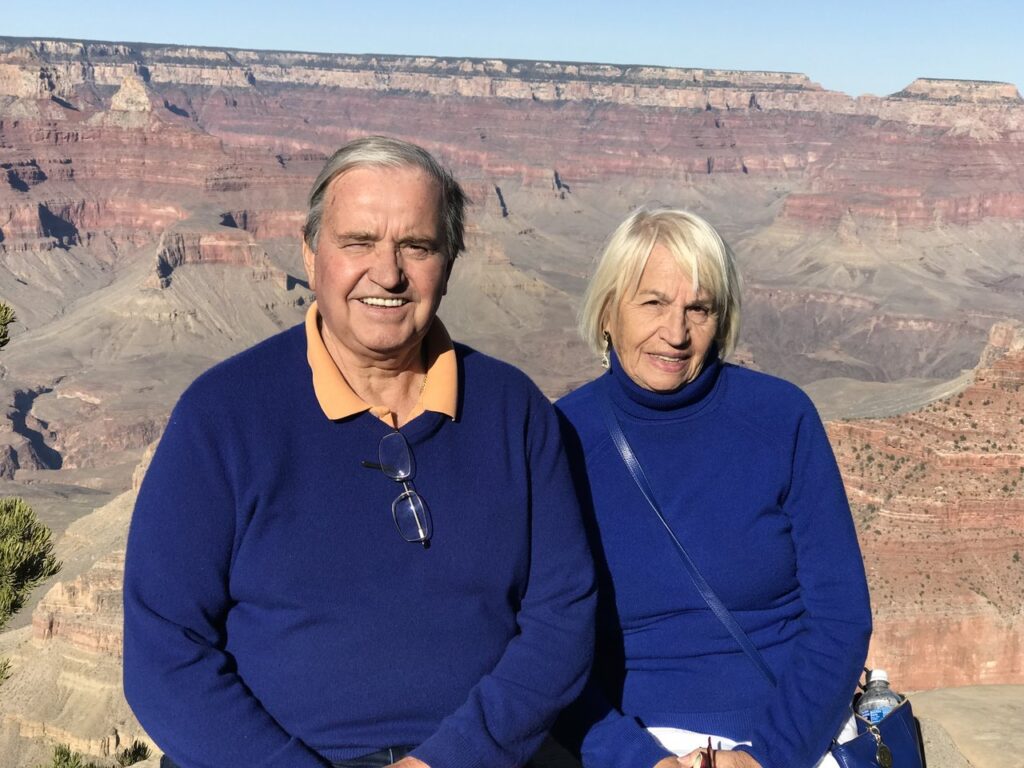
Mózes: As we got donated clothes, for instance, I got a nice coat I wore all winter. My first job was stacking wood in a lumber yard. It lasted only one day. Meanwhile, Zsuzsa was already working, and it made me sick that she was earning money while I wasn’t. Shortly, I found a good job. My father was a craftsman back home, and I learned a great deal from him. Not at the Mechanical Engineering College, but through hands-on experience. So, when they asked if I knew how to weld, I confidently said yes. I was respected; I even got a pair of winter shoes from them, and later, a small Christmas package with ham and treats. Zsuzsa and I were so happy…During this time, we learned German at a basic conversational level; unfortunately, we later slowly forgot it.
Zsuzsa: Several countries—including the U.S., Canada, South Africa, Australia, and some European nations, like Germany and Sweden—were accepting refugees back then. Mózsi was worried about America because of the Vietnam War. We could have gone to South Africa immediately, but I didn’t want to. In the end, we chose America and arrived on 2 June 1969. Our sponsor was the World Council of Churches (WCC) and the Reformed Church of New Brunswick, where Rev. Imre Bertalan, a wonderful man, was the pastor. A former friend of Mózsi’s recognized my husband in a photo at his office, so Rev. Imre asked him to take care of us. They picked us up at the airport, and we stayed with them for three days. Then, we rented a small apartment in New Brunswick, New Jersey. A couple of days later, we both had jobs. Back then, everyone around Somerset Street was Hungarian. The bag factory, industrial sites, and Johnson & Johnson were all there.
How were your first years in America?
Mózes: From the very first day, things got a little better for me every day—I slowly made progress. I started working with a childhood classmate, once again appreciating that my father had taught me a useful trade. I bought furniture piece by piece, and we moved into a bigger apartment not far from here. Then, I got a job at Johnson & Johnson. I worked in a machine shop manufacturing parts for building and assembling specialty machinery for about two years, then moved into management, eventually becoming the technical director of the department. Meanwhile, I started my own business in our garage. I bought a lathe and a milling machine, and started to design and build tooling for a company, then smaller packaging machines. Business took off, and I outgrew the garage. At first, I worked both at my job and in the garage, but eventually, it became physically impossible to manage them simultaneously. Zsuzsa also opened her own paper and bookshop, which was a compromise between us because we had our small children by then, but she didn’t want to stop working. This way, she could manage the small store and had time to be with the children after school.
Zsuzsa: Robi was born in 1970, and three years later, Erika arrived. After two weeks, I had to go back to work, and we had no one to take care of the children. So, we bought that little shop and agreed on a routine: I’d take the kids to school in the morning, and when the school bus dropped them off at the store, an elderly lady would come, take over the shop, and I could go home with the children.
Mózes: The most important thing for me was that Zsuzsa could take care of the children. Before that, I’d sometimes drive home like crazy, so that she could get to work on time, while the children were left alone for 20–25 minutes. Nowadays, they’d put us in jail for that. Once, I was so exhausted that I fell asleep, and our little girl went outside the house in her pajamas, but couldn’t get back in. The Good Lord woke me up. After that, I propped the door open and lay in front of it so she couldn’t get out. We survived. As time passed, our lives kept improving. At one point, the two jobs were very demanding; I was ready to quit and focus solely on my new venture, building packaging machinery. I was very lucky, because at one point Johnson & Johnson was planning to lay off 50 people and was offering a generous retirement package. I’ll always be grateful to one of my former bosses, who knew about it, but couldn’t tell me outright. He just asked me to hang on a little bit longer. As I mentioned, I had already told him I couldn’t take it anymore. So, it happened that, in the history of the company, a Hungarian managed to secure one of the best severance packages in 1995…At that time, our house was being built, and I completed it with that money and my brother’s financial help from South Africa.
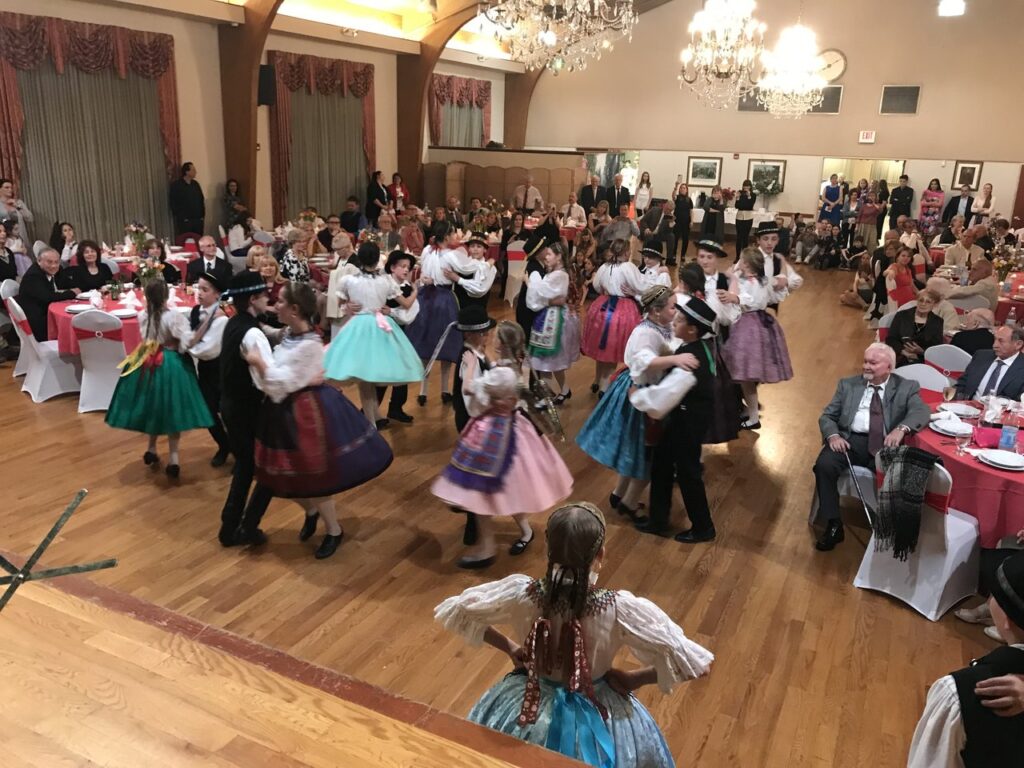
Meanwhile, you both participated in the life of the local Hungarian community in many ways.
Zsuzsa: When we arrived, the church supported us. Soon after, Mózsi took on the role of presbyter several times. There are a lot of duties around the church, from maintenance to spiritual matters, and help is always needed. The six Hungarian and six English presbyters, under the pastor’s leadership, made important financial decisions, such as purchasing the house next to the church for future generations.
Mózes: Meanwhile, Zsuzsa did much more for our children than I was able to. She was the family driver, taking them to extracurricular activities, Hungarian weekend school, and scouting. First, she helped at the church and was a Sunday school teacher. Then led their scout parents’ association for seven years. At the time, the Teleki Pál Scout House still had debt and needed funding. They cooked soup for sale every Sunday with two or three other scout mothers. She worked much harder than I did in this respect. They also asked me to help organize balls, which I did, but overall, I couldn’t contribute much as I was busy with work and building our house. Luckily, my wife organized the spring balls and raised the money to pay off the debt on the scout home. We also participated in organizing the first Hungarian Festival. Rev. Imre Bertalan and the others took the lead, but we were there helping them. We truly took our share of the Hungarian community life.
What about the 110-year-old HAAC, which has the most beautiful Hungarian ballroom in America?
Zsuzsa: The HAAC always been the main hub for Hungarians in New Brunswick and its vicinity, with a beautiful building and many events: children’s, youth, and adult folk dance groups, spring and harvest balls, Valentine’s Day, Halloween, and New Year’s Eve parties, regular Tuesday night card games, and Friday night dinners. We spent well over two decades volunteering in this organization. Mózsi was elected president for the first time in 2012 for four years. During that time, the leadership improved many things in the building and continued offering a busy event schedule. They held at least three or four major concerts each year with Hungarian guests, including Apostol, Republic, Fecó, Márió, Bódi Guszti, 3+2, and Dupla Kávé, who came at least six times. The Equestrian Theatre of Komárom performed János Vitéz there. They organized successful, full-house dance parties, folk dance houses, and balls. After these four years, Mózsi served as vice president. However, when the president resigned for family reasons two years later, Mózsi returned to the presidency for another two years. In 2020 Bott-Varga Denisa, a folk dance instructor, took over the presidency, and the leadership was refreshed with more people from the younger generation. However, the COVID pandemic slowed down this new momentum. The club’s demographics changed a lot: many older members moved out of the area, retired, or passed away, while younger members struggled with disrupted routines. It wasn’t easy to sustain and keep the club operational before the COVID pandemic, but afterwards it became even harder. As soon as it started to pick up again, Denisa unexpectedly resigned, and no one stepped up to take over.
Mózes: That’s when I told former president Marika Stumpf: ‘We have to either come back and take it over, or we’ll have to close it.’ We’re already 80 years old, and my health is failing. Even if I wanted to help forever, I simply can’t anymore. On 1 January, I’ll finally step aside so the younger generation can fully take over. As long as we don’t step down, they won’t step up. Since the COVID pandemic, volunteer work within the club has also declined. I used to say: ‘The salary is zero, but next year we’ll double it.’ If you don’t do it from the heart, it’s not worth starting. At the club’s 110th anniversary, I emphasized teaching young people the culture of volunteering—to wake them up, because without them, there is no future. Some people still help routinely; for example, 10–15 people recently came to bake kalács. But no one wants to take on the responsibility of running the club, which is like managing a small business. Water, electricity, gas bills, permits, and elevator maintenance are essential costs that must be covered. Property tax alone is $50,000—it used to be $70,000. We really hope someone will take over; otherwise, the club’s continued operation is at risk, which we want to avoid at all costs. But whoever takes on this role will have a tough job. Unfortunately, interest is surprisingly low.
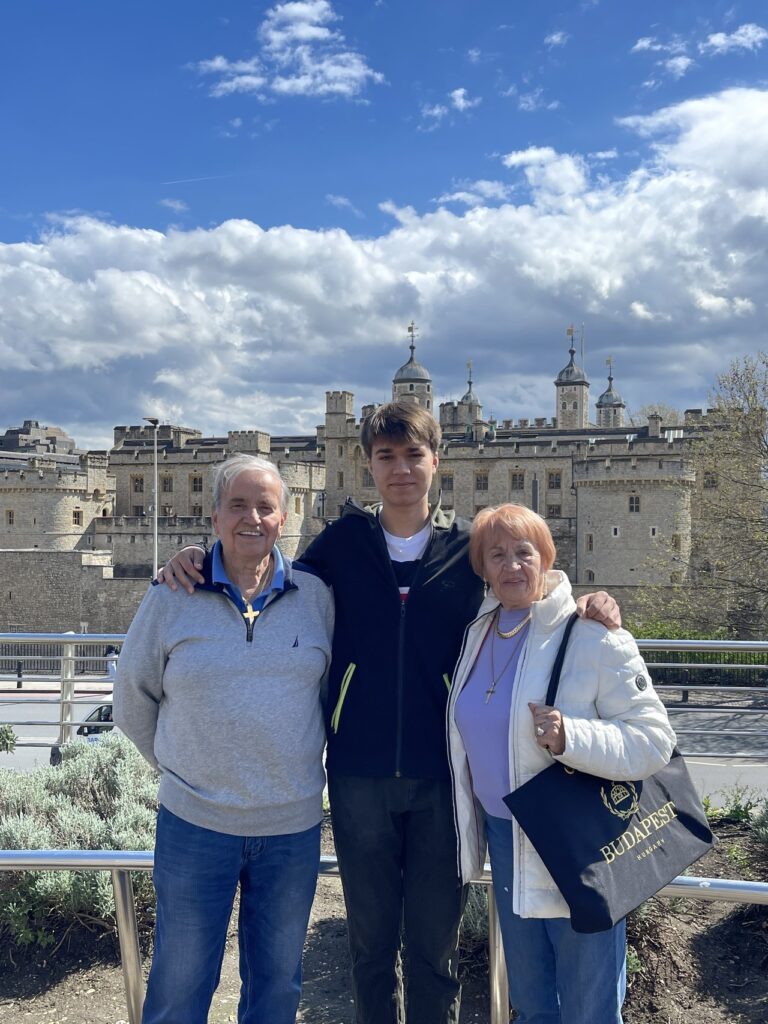
Is there no younger generation to take over? What about your own children?
Zsuzsa: Several generations are missing after us. We need those over 50 the most, whose children are already in college and have some time to devote to managing the club. Our daughter was a scout leader for ten years, and our son now leads the parents’ association of the scouts. He has always helped the scouts; at every scout camp, he cooks for sixty people, taking even a leave from work for these events. However, neither of them wants to join the HAAC, as they are already involved with the scouts. We had to drive 45–50 minutes to the club from our house, yet we made it every Tuesday and Friday. Robi has a 19-year-old son, Bence, and a 15-year-old daughter, Zsófi. They attended Hungarian school and are very much involved in scouting, Zsófi does folk dancing, and Bence used to play the violin and later the contrabass. He is now in college in Boston and has joined a Hungarian scout troop there. No matter what difficulties the club faces currently, we hope for a better future, and we are deeply grateful to everyone who has contributed to its success and survival. We trust the younger generation to continue taking care of our rich, common Hungarian heritage.
Read more Diaspora interviews:

